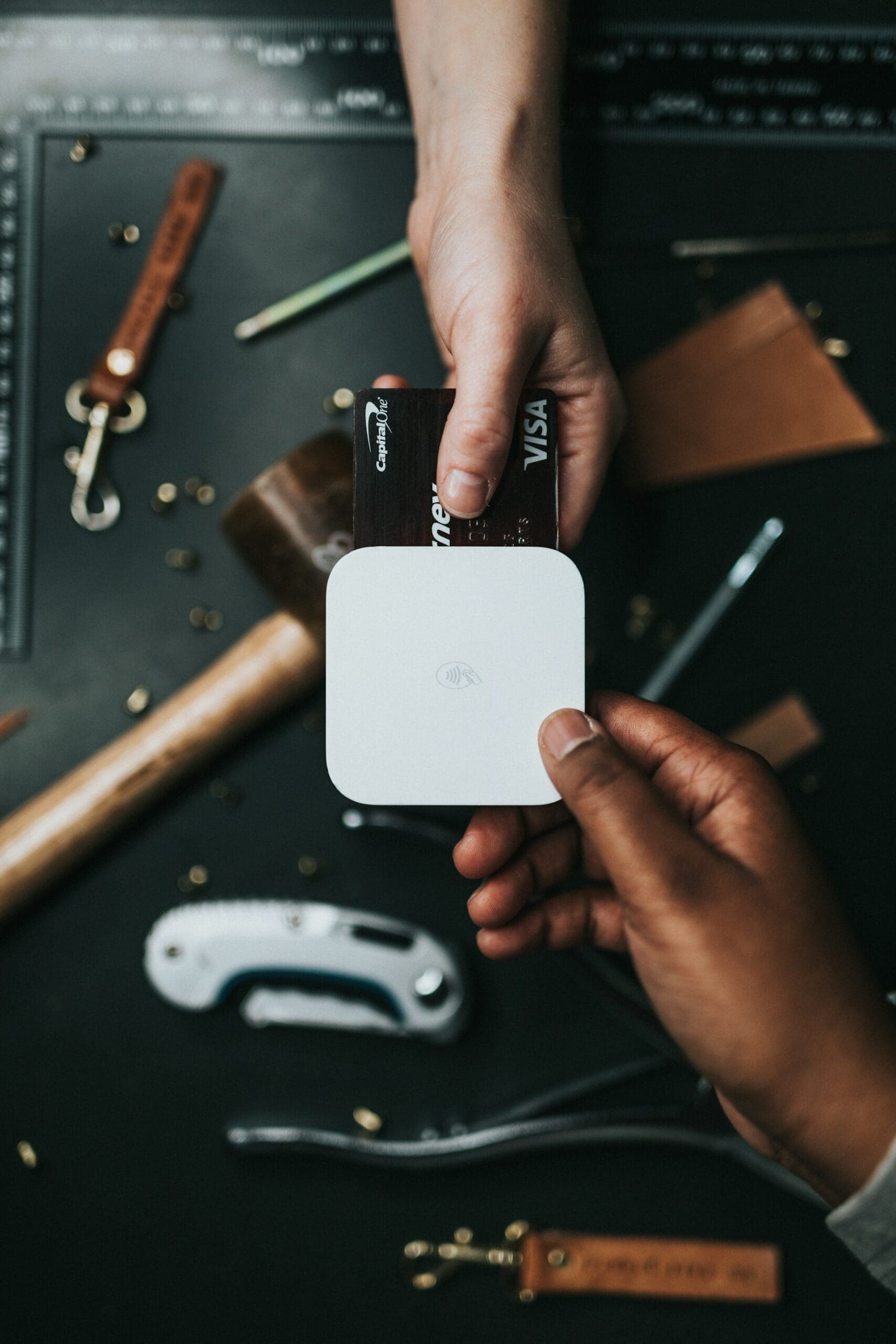By Suzanne Rent
Scott Santens is the founder and CEO of the U.S.-based Income to Support All (ITSA) Foundation, and has been researching and advocating for Universal Basic Income (UBI) since 2013.
In Nova Scotia, there seems to be an increased interest in UBI with groups like Basic Income Nova Scotia hosting annual conferences on the UBI concept. Last year’s conference included discussions on the P.E.I. Basic Income Report, which I wrote about here.
Meanwhile, councils in Nova Scotia municipalities and towns, such as Yarmouth, have passed resolutions in support of basic income.
On Tuesday, I interviewed Santens about his work researching UBI, his thoughts on a recent resurgence in the interest in and support for UBI, and what automation and AI means for UBI.
This interview has been edited for length and clarity.
Halifax Examiner (HE): Tell me how you got into studying and promoting UBI, because you’ve been working on this since 2013.
Scott Santens (SS): I got into it back in 2013 through the automation angle. This was actually prior to anyone really talking about automation. A big report that fall suggested about half of all jobs would be automated in the next 20 years.
At the time when I got into it, no one was really talking automation at all. I was really interested to learn going through all this discussion, and then basic income popped up here and there. I was reading about that and started looking into it. I was just fascinated to learn that we had multiple [UBI] pilots around the world and it goes back to Richard Nixon and how we did some pilots in the U.S. in the 70s, and how even Nixon was pushing a version of it called the Family Assistance Plan (FAP) that passed the House [of Representatives] twice.
Not only did the U.S. do [UBI] pilots, but Canada did a pilot in Manitoba in Dauphin (Mincome) and it just fascinated me to learn all about that history and the evidence behind it all that those pilots discovered.
The more I looked into it, the more it made sense that it wasn’t only something for automation but actually just makes good sense. And it’s something that we should have done decades ago. It’s something that would have so many positive impacts if we were to do it.
HE: When you talk about automation, you mean like AI or other forms of automation?
SS: In current days, it’s mostly about AI and robots. I would argue that we’ve already been looking at that automation since the 70s, and that’s kind of the main impact, in general, of automation that people talk about how there won’t be any jobs.
For the last decade, that’s really been the main impact is that there’s been a wage depression impact and a greater inequality increase. We’ve seen a lot of productivity growth through automation, through computers, and manufacturing and things like that. But most of that growth has gone mostly to the top.
We just expect more of that. It’s not like there won’t be any more jobs. There will be lots of robots and AI potentially, but the impact will be people will just be getting paid less. The rich will get much, much richer and inequality will get much larger.
HE: There seems to be a resurgence in the push for UBI here in Nova Scotia. A lot of municipalities in small towns have passed resolutions in support of UBI. Are you seeing that elsewhere in other jurisdictions through your work?
SS: In the U.S., we’ve seen a lot of progress at the local level since the pandemic. We have over 150 pilots around the country taking different shapes, nothing that I would consider to be like a true universal basic income pilot, which would be an entire town or at least entire communities.
HE: What do you think the reluctance is to UBI programs, though? As you said, there have been studies and pilots for UBI since the 70s, but it’s never really gotten any huge traction.
SS: The top three kneejerk responses are, how do we pay for it, won’t people stop working, and won’t this cause inflation. Those are kind of the headspace arguments where people are thinking about the behavioural impact. They don’t understand how inflation works, and maybe they are thinking people are lazy. I think the read of it is just a coercive power kind of thing.
HE: Have there been any pilots around the world that you thought were really impressive in terms of how UBI would work or that had all the right components?
SS: I think one of the earliest ones was up there in Canada, in Dauphin [Manitoba] and that was because the entire town got UBI. There’s universal basic income and there’s negative income tax, and they can both achieve the same thing in the same way.
There’s a lot to learn from that kind of [UBI] where an entire town gets it. There’s been one in India and in Namibia. Both of those were full universal pilots where the entire village or villages and every adult and child in a household [got it]. There’s a big difference between one person in some community getting unconditional cash and every member in a community getting unconditional cash.
In the India pilot, one of the most successful people in that pilot started her own business with her first payment. She started to make loaves of bread to sell them to the village. And she did really well to the point where by the end of the pilot, she was earning four times as much as a basic income. If she had got a loan and got the exact same thing, would she have been as successful? Well, probably not, because she wouldn’t have [been] surrounded by customers. But the thing is, because the entire village got the basic income, then she was surrounded by people who had money and could actually pay for bread.
That’s why you see this large impact on entrepreneurship in these pilots and also why you see crime reductions. I wouldn’t expect to see a crime reduction if a couple of people in a community got basic income.
HE: We’ve written about this before, that there seems to be no reluctance, at least here, in Nova Scotia, in Canada, in giving certain people money and only for big splashy projects. But to give everyday people money is really frowned upon.
SS: That’s the problem of the deserving and the undeserving. You’ve got your seniors and you’ve got people with disabilities, and you’ve got parents, especially single parents, not so much multiple parents. It’s expected that one of them should work.
That’s a big challenge and I think that’s why automation kind of helps disrupt that. We also had kind of an inkling of this too during the pandemic. The massive unemployment wasn’t blamed on the people themselves. It wasn’t their fault. They didn’t do anything wrong. It was just very popular to give money to people. We had our stimulus cheques and unemployment and you had your CERB (Canada Emergency Response Benefit). It was just seen differently.
Even with responses to where a disaster happens. Oh well, that’s fine to get any kind of rebuilding money or whatever. You didn’t do anything wrong. That was an act of God.
I think automation could get at that, where if there’s enough of an issue where people are finding it hard to find jobs or they’re finding it hard to find jobs that pay well, they could be like, “well, what about me? I’m not doing anything wrong?” As soon as someone starts thinking about themselves, their need for help…I think that opens the door to this kind of rethinking of the deserving versus undeserving.
HE: Those disaster responses and the responses to COVID prove that governments can, at least on the administrative side, pull these things together.
SS: Absolutely. Social Security is the most efficient program here in the U.S. It’s got a 0.5% overhead and they send out payments every month. They’re very efficient at it. I would say if there’s one thing that government is good at it is cutting cheques. They’re very good at getting money to people. It’s all the others stuff that they may not be so good at, especially when you have to have administrators and bureaucrats checking boxes here, and testing people for that.
When it came to the pandemic, we saw immediately, oh, this is a big problem. Tens of millions of people are unemployed here in the U.S. and then in very short order, they started sending money to people. And they didn’t raise taxes to do it. They just got the money out there. That was it. There’s nothing stopping a government who issues its own currency to actually just get money to people.
HE: Are there any legitimate arguments against UBI?
SS: I would say when it comes to the work argument, that’s not a valid argument. When you look at just the mountain of evidence about what happens, what’s been their response to unconditional universal income is maybe you’ll have some people working a little bit less, especially in particular groups. Let’s say those groups are usually seniors, those with disabilities, new parents, or students. Because the amount is universal, then you actually have more people to seek out jobs and they are able to do that work. But overall, you just don’t see any kind of big impact at all. It’s not a big increase, it’s not a big decrease. It’s a waste of money to apply conditions and means testing for the cash.
You have two other main arguments. One of them is the cost. It’s a big cost, sure. Here in the U.S., the net cost of a poverty-level basic income would be about $1 trillion more per year. That’s a good amount of money. But it’s also important to understand it as an investment.
We would expect to see less crime. We would expect to see better health. We wouldn’t be spending as much on the health care system. The Dauphin, Manitoba pilot saw about a 90% decrease in hospitalization. The other pilots where you see large decreases in ER usage, you see increases in preventative care. You see decades down the line, there would be a lot of better health outcomes.
If those savings end up being more than a trillion dollars a year down the line, then I don’t see why the cost argument is a good argument either. Poverty isn’t free. Extreme insecurity and inequality aren’t free. All of these things have downstream impacts and are very expensive.
The inflation argument, which people have started worrying about even more because of the pandemic, because obviously we saw this global inflation. A lot of it has been blamed on the pandemic stimulus various countries did. That one is tougher. There is definitely a concern about the way these things can be done. But the details matter when it comes to the inflation concern. When people worry that any amount of basic income done in any way would cause hyper-inflation, then no. That’s ridiculous. That’s not going to happen.
If you’re talking about a poverty-level basic income, and you’re pairing it with increased taxes on those with higher incomes, corporations… then again, you’re going to have very low inflationary pressures. There could be some and you would see it in certain sectors. It’s not like people are going to start buying ten times as much food.
When it comes to inflation, a lot of the arguments are about the economic capacity to meet demand. So, if demand goes up for a certain thing, then supply needs to catch up. If supply can’t go up, then there needs to be some price increases, and maybe that will just be temporary.
You want to make sure that a country is producing enough goods and services to meet people’s basic needs. When it comes to luxury goods and stuff like that, those are limited supply and those prices might go up. I don’t think that’s a concern.
HE: I’ve read a lot about UBI and written stories on UBI, certainly not nearly as much as you, but what I have learned is that most people use the money to make their lives better. But they have control over the way they use that money instead of being told how to use that money. So they might start a business or they might leave a partner who’s abusive or they put it aside for their children. Do you see that in your research, too?
SS: I like to describe a basic income distinctly as the power to say no and the freedom to say yes. The power to say no is to your employer. Maybe they’re not paying enough. If you’re in a relationship with someone and the power to say no to them is the power to flee. You’ve seen that in experiments, plenty of times actually.
In the U.S. in the 70s, one of the concerns that helped kill Nixon’s plan was that members of Congress were concerned that women would leave their husbands. That actually wasn’t true. It was a statistical error at the time, but they were freaking out about higher divorce rates. It was bad that they were freaking out about women leaving abusive husbands, but also it was just bad math at the time.
When they looked back later, they found that even though women didn’t divorce their husbands at a higher rate, [UBI] did improve relationships. It was that ability and the freedom to leave that made the difference.
That’s also the freedom to say yes. You can say yes to things you like. You can start up your own business. You can pursue unpaid work. You can switch from the labour market to unpaid care work at home.
HE: What would you say to governments and skeptics of UBI?
SS: It’s really difficult to get people to think differently about poverty. I know it’s only in specific circumstances like disasters and COVID where people thought that. I don’t think we can actually convince anyone otherwise until they’re in a drastic situation.
Instead, I think that people need to think of basic income not as a welfare system, but as a dividend. I think AI really helps us see this in a different way. Where does AI come from? Public funding went into the R&D that made AI possible. Then, AI was fed massive amounts of data… and the data came from us. We created the data. Not only present day. It shouldn’t only be seen as our work and capital that went into making this possible, but also our ancestors. So [UBI] can also be seen as an inheritance. No one judges inheritances. Inheritance is fine. Everybody agrees that is fine. We should also look at it as inherited dividends. We should see ourselves as stockholders.
There are other natural resources. Why aren’t we seeing ourselves as the owners of not only oil, but why aren’t we the owners of wind power, solar panels? We can look at this stuff differently and see ourselves as joint owners, and if we did that I think we would start to see things differently.





















